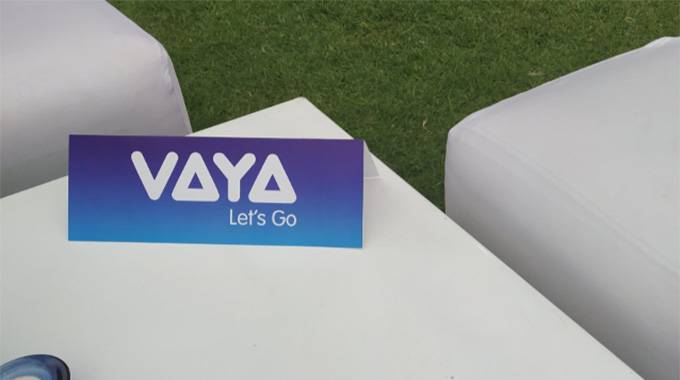Vaya Africa launches electric vehicle

Business Reporter
Vaya Africa has launched an electric vehicle service in Zimbabwe as part of the company’s roll-out strategy across Africa.
“We are excited to launch the ‘VAYA Electric’ vehicle today (yesterday) as we start our journey of deploying innovative ways of harnessing clean, renewable energy to provide safe and convenient transportation services to the public on the African continent,” said Mrs Dorothy Zimuto, the CEO of Vaya Mobility in Harare yesterday.
She said VAYA Africa plans to roll out the VAYA Electric vehicle in West and East Africa soon, saying the vehicles would include a range of multi-purpose cars.
“Our e-vehicle fleet will include passenger vehicles, motorbikes, vans, buses and dump trucks, all utilising our VAYA hail riding platform. We believe this dovetails well with our vision of driving inclusive technology growth across Africa,” Mrs Zimuto said.
The VAYA Electric will be part of the VAYA Premium service, a passenger service available on the VAYA Africa application that offers a wide variety of VAYA services — including logistics services.
Mrs Zimuto said to enjoy a ride, one simply downloads the VAYA Africa App and look for the Mobility Option.
“They select the Electric Vehicle and this prompts them to choose the pickup and destination addresses before requesting a ride,” she said.
She added that the App provides convenient payment options, including mobile money, payment by VISA, MasterCard or any other international debit or credit cards options.
“Electric vehicles have zero emissions and our aim is to ensure that all vehicles we have on the VAYA platform in the next 10 years are electric vehicles,” said Mrs Zimuto, whose VAYA Africa service currently operates the largest hail riding service in Zimbabwe.
She said electric vehicles will provide cost savings of up to 40 percent on the major running costs of fuel and regular maintenance, in comparison to vehicles that run on fossil fuels.
“The benefits of the use of e-vehicles will be less frequent services and fewer scheduled vehicle maintenance check-ins than ordinary combustion engines. They will require minimal scheduled maintenance for their electrical systems, such as the battery and electrical motors. Other parts such as brakes also last longer because of their regenerative braking systems, where the battery is charged when breaking,” Mrs Zimuto said.
Mrs Zimuto said e-vehicles would be charged on solar or on grid-tied electric charging stations across the country.
“Our electric vehicles will be charged on charging stations deployed across the country, built by Ugesi Energy, a subsidiary of Econet Global, to offer e-vehicle owners charging options just about anywhere around the country,” Mrs Zimuto said.
She added that VAYA Africa had provided for financing for the purchase of the VAYA Electric.
“VAYA Africa has positioned itself as an enabler in the hail riding value chain.
“So we will import the electric vehicles of various brands and at the same time facilitate loans to qualifying clients and VAYA partners through Steward Bank specifically for the purchase of the e-vehicles,” Mrs Zimuto said.
Many global vehicle manufacturers have been shifting towards electronic vehicles. Volkswagen recently announced it will cease making gasoline powered vehicles altogether by 2026.
Similarly, the Chinese government says it is stepping up the manufacture of electric vehicles in a bid to curb carbon emissions from fossil fuel vehicles.











Comments